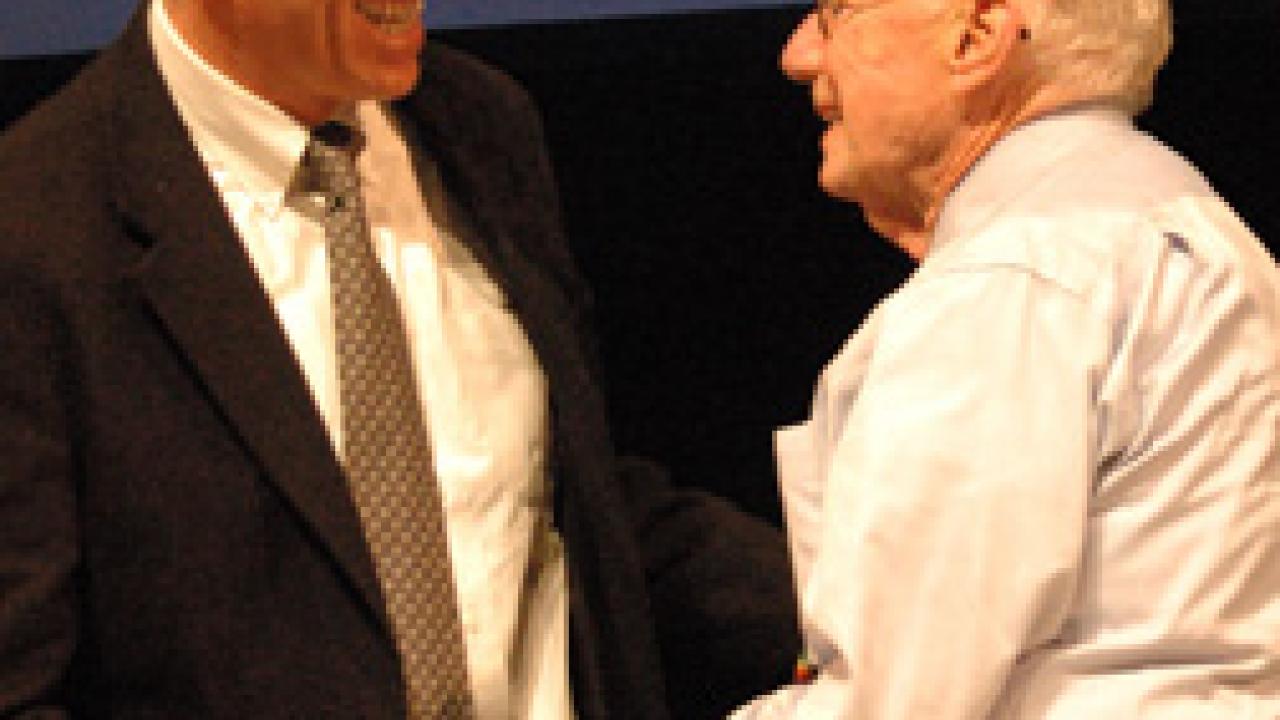Art Rosenfeld’s first stab at energy efficiency did not go smoothly: On a Friday night during the 1973 oil crisis, he tried to save electricity by turning off his office mates’ lights — but could not find the switches. They were hidden by bookcases, file cabinets and posters.
“After 20 minutes of uncovering light switches in 19 offices (thereby saving 100 gallons of natural gas that weekend), I decided that we should do something about conservation,” he recalled.
As it turned out, Rosenfeld did everything about conservation. With the precision of a particle physicist and the practicality of a child of the Great Depression, Rosenfeld made his point to politicians, power-industry moguls, policymakers, engineers and average citizens: “The cheapest energy is what you don’t use.”
Soon, instead of building new plants to make more power, Californians started designing things to use less. Refrigerators, windows, even those ubiquitous fluorescent lights — Rosenfeld’s leadership drove innovations in these and other products that made California a global example of energy efficiency.
The proof: While Californians today enjoy homes, offices and lives with far more electric appliances than we did 30 years ago, we use about the same amount of electricity per person now as we did then.
On March 9, UC Davis hosted a full day of programs and events to recognize Rosenfeld’s inestimable contributions to California’s economy, environment and public health.
A unit of energy saved: the ‘Rosenfeld’
The day included a public symposium on the future of energy efficiency innovation and leadership; the announcement of a planned $1 million endowed chair in energy efficiency at UC Davis; and the establishment of a new unit of energy measurement, the Rosenfeld — one that describes energy saved, not energy consumed.
More than 50 of Rosenfeld’s scientist and energy-policy peers, from 26 international institutions, proposed the new measurement in a paper in the journal Environmental Research Letters.
“I am delighted that a chair in my name will help UC Davis in perpetuity,” Rosenfeld said. “UC Davis founded the nation’s first university center for energy efficiency. I was honored to be part of that and to serve on its board.”
Ben Finkelor, executive director of the Energy Efficiency Center, said, “With Art as one of our key mentors and advisers, we have made dramatic strides in our first four years”:
• Pioneered a focus on collaboration with the private and public sectors in the development of promising energy-efficiency technologies.
• Launched a special center for cooling efficiency that joins the campus’s existing California Lighting Technology Center.
• Begun developing an energy efficiency curriculum tailored to teach future thought leaders and managers.
• Begun designing the efficiency components for California’s first net zero energy community — UC Davis West Village, scheduled to open in 2011.
Rosenfeld is a professor emeritus of physics at UC Berkeley, and co-founder and former director of the Center for Building Science at Lawrence Berkeley National Laboratory. He served as science adviser for the U.S. Department of Energy’s Office of Energy Efficiency and Renewable Energy.
Chair in energy efficiency
The Arthur H. Rosenfeld Chair in Energy Efficiency will recognize and support an exceptional member of the energy efficiency faculty at UC Davis. The chair holder will promote the Energy Efficiency Center’s mission to accelerate the commercialization of energy-efficiency technologies, teach future leaders in energy efficiency, and conduct critical policy-supporting research.
Chancellor Linda Katehi said the Rosenfeld Chair in Energy Efficiency will be a natural fit with the university’s broad commitment to sustainability leadership.
“Our goal is to make this a sustainable second century for our campus while we continue our leadership in energy research and innovation, and the all-important step of commercialization,” Katehi said.
Media Resources
Dave Jones, Dateline, 530-752-6556, dljones@ucdavis.edu
